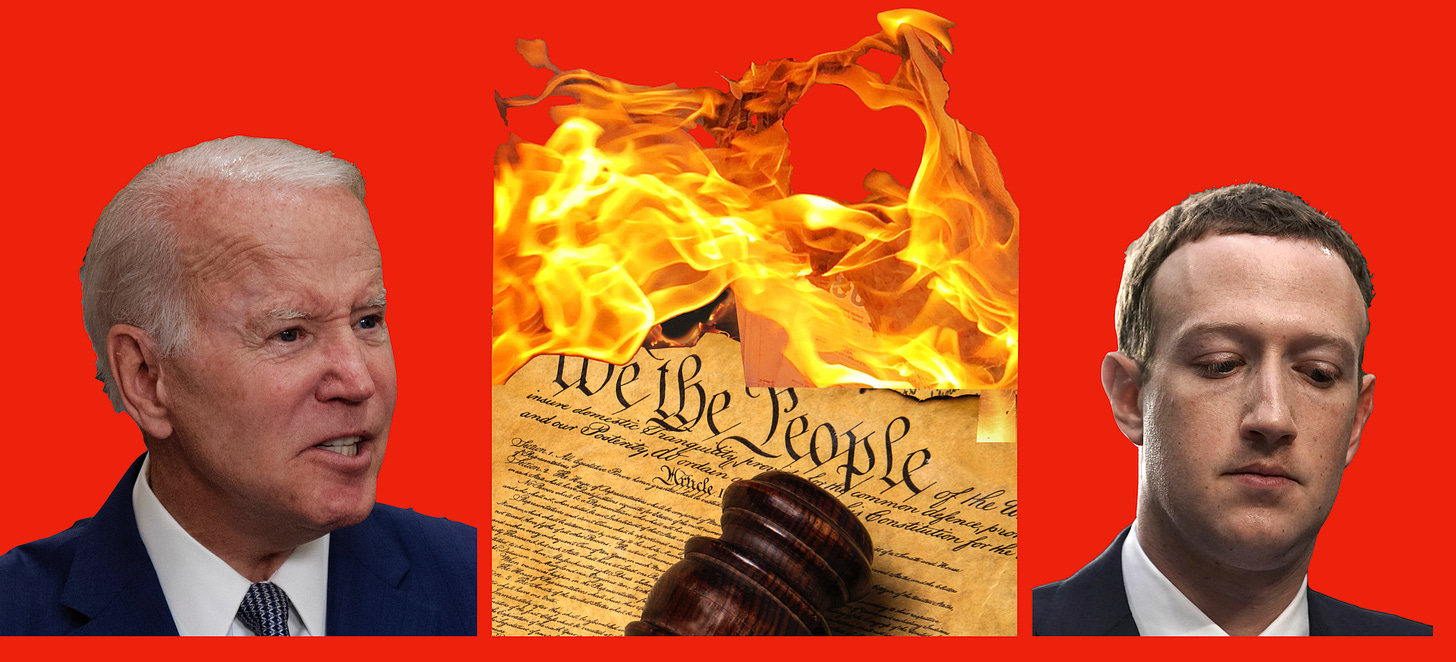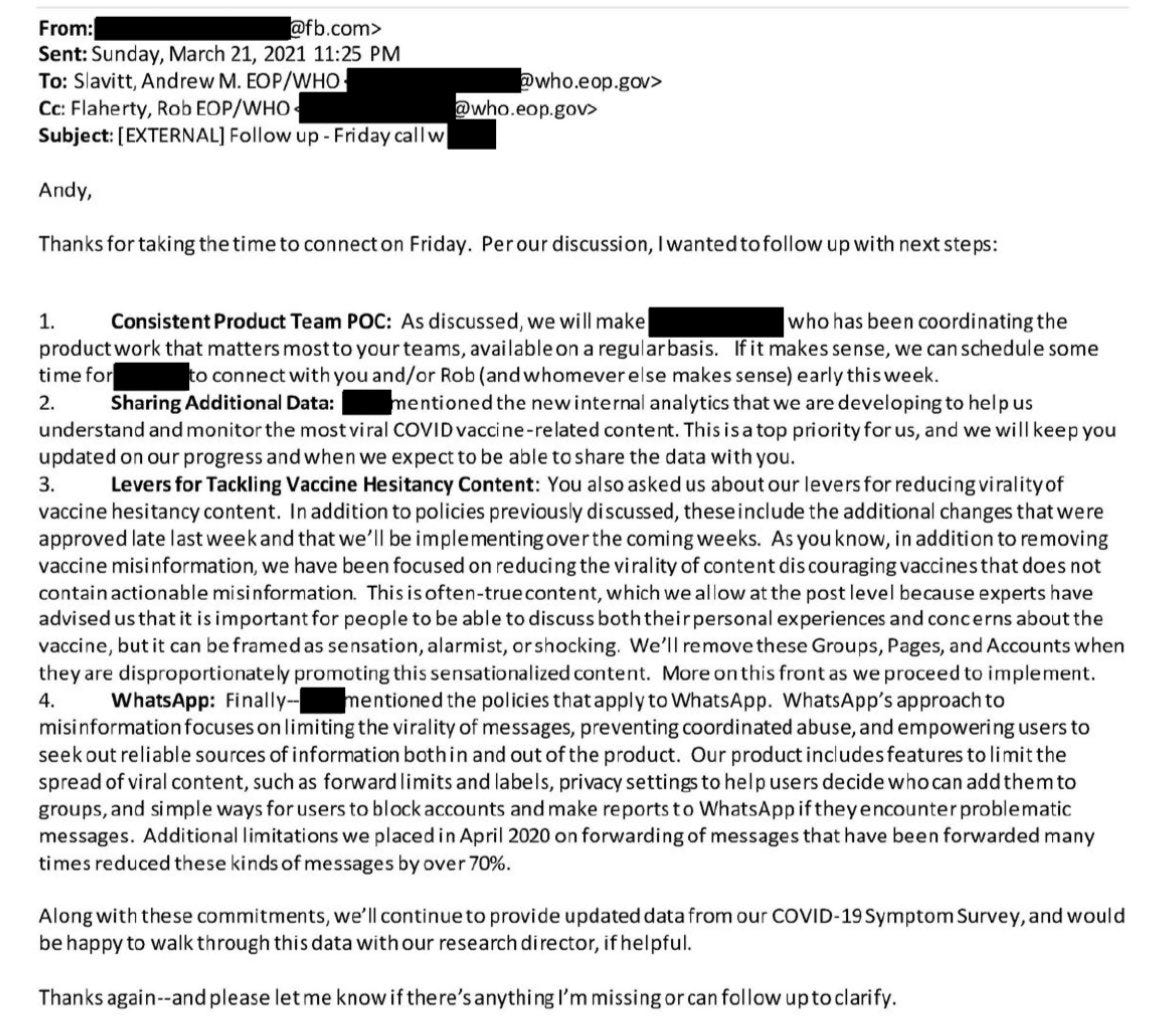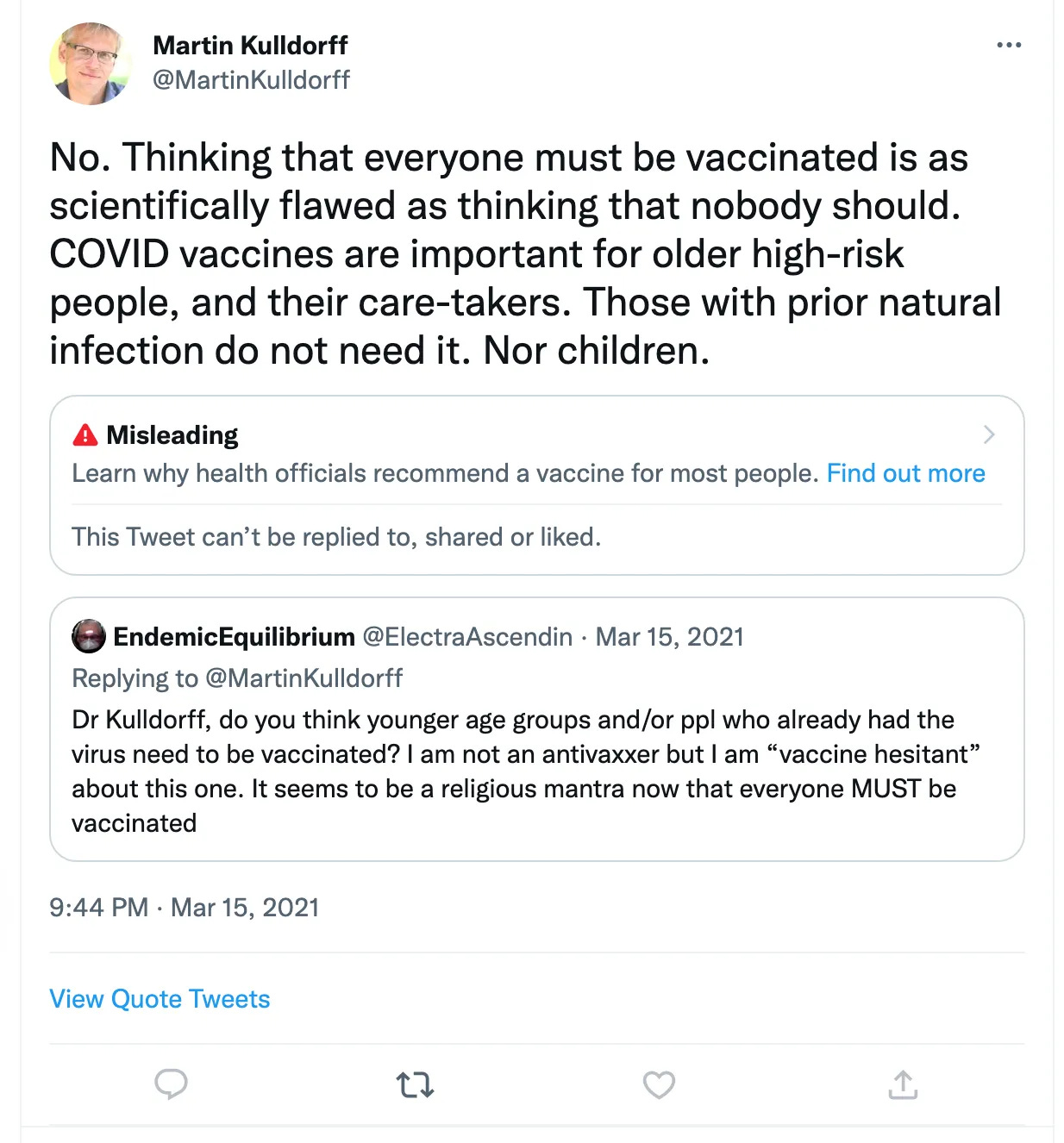Under White House Pressure, Facebook Censored Accurate Covid Vaccine Information
Facebook’s censorship of true information about the covid vaccine, discovered by the Attorney General of Missouri, could be a violation of the First Amendment
Under pressure from the White House, Facebook censored "often-true content” that a company executive said in the spring of 2021 "does not contain actionable misinformation" but was "discouraging vaccines."
The State Attorney General of Missouri, who is suing the Biden Administration for violating the First Amendment, released the email over the weekend.
“As you know,” wrote the Facebook executive whose name was redacted, “in addition to removing vaccine misinformation, we have been focused on reducing the virality of content discouraging vaccines that does not contain actionable misinformation.”
The email shows Facebook responding defensively to the White House’s then-covid advisor, Andy Slavitt. “This often-true content,” wrote Facebook, “which we allow at the post level because experts have advised us that it is important for people to be able to discuss both their personal experiences and concerns about the vaccine, but it can be framed as sensation[al], alarmist, or shocking.”
"We'll remove these Groups, Pages, and Accounts when they are disproportionately promoting this sensationalized content,” said the Facebook executive in an email responding to White House demands for censorship. ”More on this front as we proceed to implement."
Another White House official wrote in an angry, scolding email to Facebook, “We are gravely concerned that your service is one of the top drivers of vaccine hesitancy - period.” The official said it believed Facebook was at risk of "doing the same" thing it did before the Jan 6, 2021 riot at the US Capitol when "an insurrection …was plotted, in large part, by your platform.”
All of these censorship demands were occurring against a backdrop of the White House and Congress regularly threatening to revoke Section 230 of the Communications Decency Act, which indemnifies social media platforms from liability for content posted by users. The social media platforms consider Section 230 repeal an existential threat. Without the Act, they would not be able to exist in their current form.
Aaron Kheriaty, a former professor at the University of California Irvine School of Medicine and a plaintiff in the Attorneys General case, wrote in the Wall Street Journal, "The First Amendment bars [the] government from engaging in viewpoint-based censorship."
What’s more, the White House had the same impact on Twitter.
The War To Censor Inconvenient Truths





